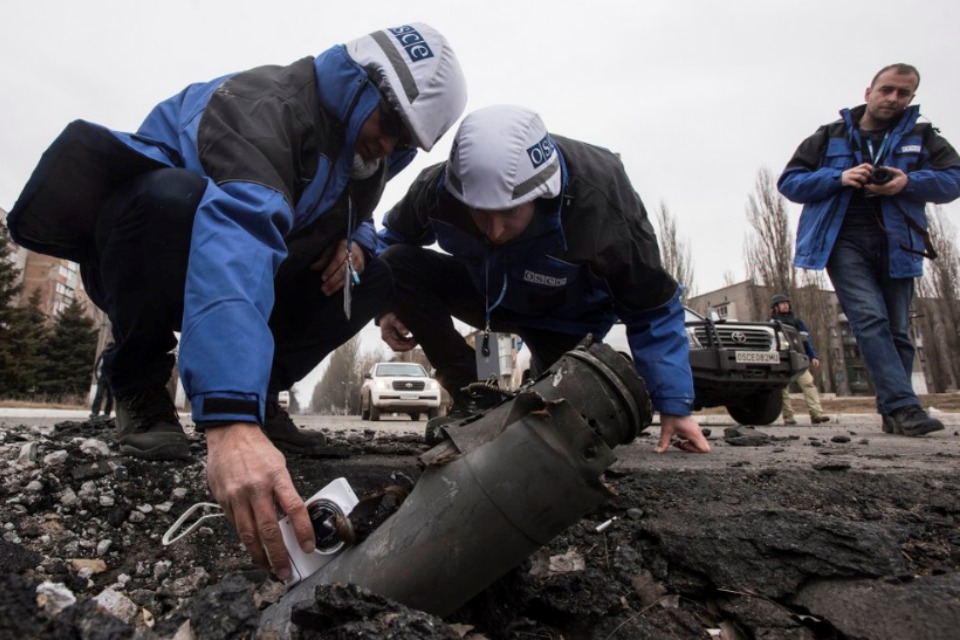"I hope that together this Council can help ensure that 2016 is a more peaceful year for all people in Ukraine"
Statement by Ambassador Matthew Rycroft, Permanent Representative of the UK to the UN, at the Security Council meeting on Ukraine

Thank you Madam President.
I welcome the briefings today from the Deputy Secretary-General and from the OSCE, OCHA, and from the OHCHR.
Given the interconnected nature of all of the issues that the United Nations deals with whether in Ukraine or elsewhere - peace, security, development, human rights, humanitarian affairs - it’s imperative that this Council hears the full picture and I’m very glad that we’ve been able to do so today. I also welcome the presence in the Council of the Foreign Ministers of Ukraine and of Lithuania.
It’s a deeply worrying situation in Ukraine for three big reasons. First, the Minsk agreements remain unfulfilled and peace remains elusive. Second, the humanitarian situation is worsening, and will only continue to do so during winter. And third, Crimea remains illegally annexed and its peoples’ human rights remain oppressed.
Let me take each of these in turn.
First, as we have heard today, progress on the diplomatic track has slowed and ceasefire violations are on the rise. Last month saw spikes in fighting in eastern Ukraine, with fatalities fast approaching pre-September levels. As a conservative estimate, over 9,000 people have now been killed and more than 20,000 wounded since fighting began.
Many recent casualties are a direct result of the abhorrent use of landmines and booby traps. Others have been caused by heavy weapons; the same heavy weapons that were supposed to have been withdrawn under Minsk. The OSCE monitoring mission makes clear where the blame lies. The majority have been committed by the separatists.
It’s imperative that the ceasefire is respected - by all parties. Not only is a ceasefire vital to the success of the Minsk agreements, it will also allow for collective action to undertake meaningful demining in eastern Ukraine. Landmines and other explosive remnants of war continue to inflict casualties on an almost daily basis. The priority must be to map their contamination and agree a coordinated approach for their removal. This cannot be achieved while hostilities are ongoing.
There is one Council member here today whose influence can bring an end to the fighting, whose pressure can deliver a political solution to the crisis. We all look to Russia to make every effort in this regard – both by using its influence on the separatists and by withdrawing its troops and equipment that still remain in Ukraine.
Russia can also have a meaningful impact on my second point; the worsening humanitarian situation. The separatists continue to deny access to both the OSCE monitoring mission and also international humanitarian agencies and this cannot continue. Sadly, at the moment Russia’s influence only seems to increase tensions. So-called ´humanitarian convoys´ enter Ukrainian territory without the consent of the Ukrainian authorities in clear violation of its sovereignty and territorial integrity. There have been 42 such convoys since August 2014 and they must cease.
With over 1.4 million people internally displaced, and an estimated 2 million people living in areas near to the fighting, the humanitarian challenge in Ukraine is enormous. The recent opening of three humanitarian logistics centres by Ukraine is a welcome move to ease civilian suffering. But we regret the continued deaths of civilians from landmines due to the lack of sanitation facilities at checkpoints. This needs to be addressed.
The situation will sadly only get worse over winter. All aid agencies must be allowed to aid preparation for cold weather across Ukraine. If access continues to be restricted, aid agencies will be unable to transport, store and deliver critical supplies to thousands of affected people. A failure to do so will only lead to more suffering and more deaths.
Madam President,
Turning to my final point, it is now 21 months since the illegal annexation of Crimea. In that time, the human rights situation has deteriorated. We hear regular reports, including from Mr. Simonovic today, of repression and restrictions of fundamental freedoms of assembly, of association, of expression and of belief. The UN’s Human Rights Monitoring Mission to Ukraine, noted in its report this month that most human rights abuses in Crimea are directed at Crimean Tatars and people supporting Crimea’s rightful place in the Ukrainian state.
With temperatures falling and a road blockade denying access to food and provisions, the humanitarian situation on the peninsula is getting worse. The electricity crisis is exacerbating this, and we have raised the urgent need to restore the damaged electricity power lines with the Ukrainian government.
Let me conclude, Madam President, by thanking the briefers again for their contributions. I hope that together, this Council, alongside the relevant agencies and regional associations, can help ensure that 2016 is a more peaceful year for all people in Ukraine. I look forward to working with all Council members, both old and new, in making this a reality.
Thank you.